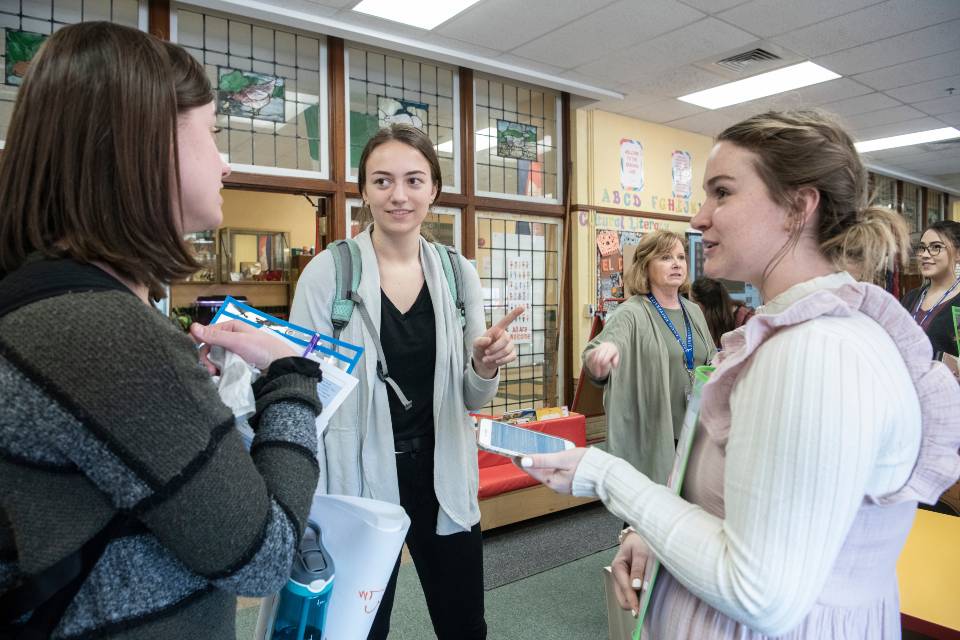Birth-12 Administrator Field Experience
Just as administrators set the tone for their school's climate, they can also set the tone for welcoming university students and personnel as meaningful partners in their search for school improvement and excellence.
Let's face it, children of all ages can be—well—unpredictable. Sometimes this makes opening your doors to university students a little stressful. This unpredictability, however, is exactly what education majors need to see and experience in order to link and apply the theories they have learned on campus. Their experience in your school is what makes this learning so relevant.
Whether students are observing for an hour, working with your learners weekly, or engaging in a service-learning project that you have requested, letting your teachers know they are not expected to be perfect can go a long way in easing their minds. Also, it is likely that they will "step up" and present their best teaching techniques, similar to the way we all want to "clean up for company." Most commonly, host teachers express how much they enjoyed having visitors and often say they have learned some new strategies to try from their college student.
The Saint Louis University School of Education Field Office requests a couple of things to ensure our partnership is successful:
1. First, communicate, communicate, communicate.
a. Let us know what is working for you and what is not, as well as anything you would like for future
semesters.
b. Let teachers know when we are coming and why: in terms of the specifics, but also in terms of the overall
vision.
c. If you prefer we work with a designee, just let us know and connect us through email; we realize how big your job is.
d. What would you like to communicate? If you do have time, consider what advice you would like to
give our future educators, or what strengths your school possesses that you would
like to spotlight.
2. Second, when selecting cooperating teachers for practicum students, student teachers, and other purposes, please take the time to choose teachers who are high quality, rather than using a "whose turn is it next" approach. What does the term "high quality teacher" mean?
a. As a baseline, a high-quality teacher is an educator who has been teaching for
at least three years in a position for which they are certified.
b. In addition, teachers who are strong, inclusive instructors with a caring, yet firm classroom management approach are positive role models for our students.
c. Finally, successful cooperating teachers are collaborative—willing to interact with, give feedback to, and learn with the university students
and faculty members involved.
The School of Education Field Office thanks administrators for paving the way so that our students can connect with and learn from your students, staff and school.
